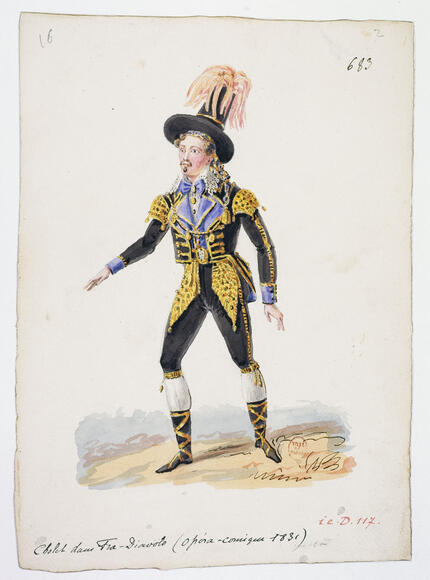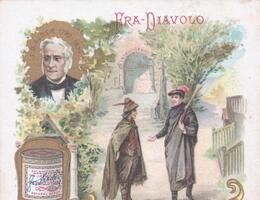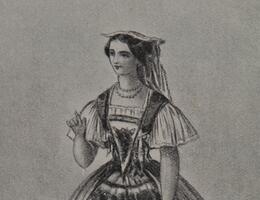Fra Diavolo ou L’Hôtellerie de Terracine

Opéra-comique en trois actes
Named after a historical figure who organised resistance against Napoleon’s campaigns in Naples, Fra Diavolo is the leader of a group of bandits. Like Robin Hood, he steals from the rich and gives to the poor. Scribe and Auber were no longer rank beginners when they presented this new work at the Salle Ventadour. The 200 or so Paris performances racked up in the work’s first ten years (by the end of the century this number had quadrupled) are the hallmark of a work very much in sync with public taste and the performers of the time. The score relied heavily on a trio of very different high male voices: Chollet (bari-tenor), Féréol (Trial) and Moreau-Sainti (tenore di grazia or light tenor). The libretto abounds in colourful situations: the scene when Zerline gets ready for bed is observed and commented on by the bandits, who have to cross her bedroom to commit a theft. The presence of English travellers (Lord Cockburn and his wife Pamela) provided an opportunity to make fun of the pseudo-British accent affected by Féréol, while conversations were enlivened by the comic genius of Madame Boulanger—the grandmother of composers Lili and Nadia Boulanger—who did not always sing in tune, but had a consummate knack for delivering her replies in such a way as to make the audience laugh. There are also some highly vocal passages, like Lorenzo’s romance. In Fra Diavolo’s aria “Je vois marcher sous ma bannière…”, he imitates all the passers-by and even switches to falsetto to mimic a young girl; this is one of the few instances when the use of the light mechanism or head voice has never died out. The success of 20th-century revivals (Nicolai Gedda was one of the leading performers of the title role) show that the work’s intrinsic qualities are well-suited to winning over a much more modern audience.



